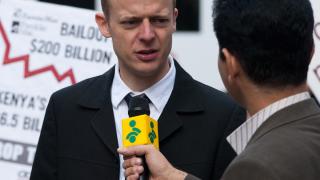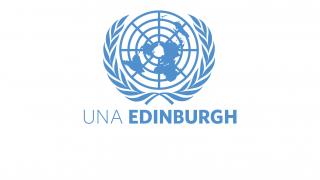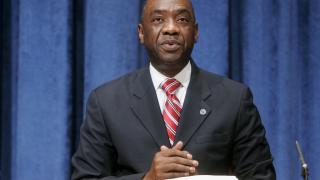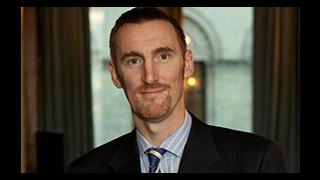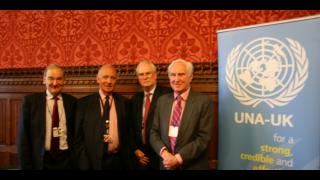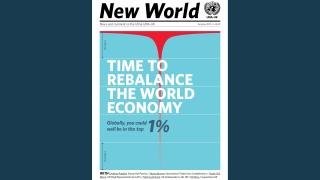
It would seem self-evident that the poorest people on the planet should not pay for the mistakes of the richest; nor should the sick. But as austerity eats into aid budgets that is exactly what is happening.
The Global Fund, the world’s largest financial backer of the fight against AIDS, tuberculosis (TB) and malaria, saves an estimated 150 lives every hour – that is over 100,000 lives a month. Yet, declining donor contributions have forced it to cancel its next funding round, leaving millions of people at risk of losing access to lifesaving treatment. In Tanzania alone, where the Fund provides two out of every five dollars used to fight TB, more than 45,000 patients will be affected. A further 3 million people may lose HIV counselling and testing services, as the country expects to lose some $50m in aid due to the cancellation. One health worker explained that, without the Fund’s help, her patients would be forced to choose between taking medicine and buying food.
This is just one example of the world’s poorest people losing out as a result of a financial crisis for which they bear no responsibility. There are plenty of others. Earlier this year, the Organisation for Economic Cooperation and Development (OECD), found that official development assistance fell by nearly 3% in 2011 – the first drop in 14 years. There is now little immediate prospect of finding the $168–180bn a year needed to meet the UN Millennium Development Goals (MDGs) or the sums pledged by developed countries (rising to $100bn a year by 2020) to fund climate mitigation and adaptation activities in developing countries.The Green Climate Fund, intended to manage and disburse these monies, is yet to be designed, and with no agreement reached on how it will be financed, there are concerns that this is a pot that may never be filled.
With donor countries struggling with the impact of the financial crisis and determinedly pursuing domestic austerity programmes, there is a pressing need for new sources of finance.
Perhaps the most talked about is the Robin Hood Tax, properly called financial transaction taxes (FTTs). These would involve a small levy on transactions involving the four main classes of financial asset: equities, bonds, foreign exchange and their derivatives. The proposed FTTs are minuscule – the European Commission (EC) has suggested a tax rate of 0.1% on equities and bonds and 0.01% on derivatives, and the Leading Group (a coalition of international organisations, NGOs and 63 countries) a 0.005% tax on foreign exchange – but their impact would be enormous.
An FTT on all asset classes rolled out across all developed countries would generate almost $300bn annually from the currently undertaxed financial sector, helping to redistribute a small proportion of money from those who caused the financial crisis to those who had the least to do with it but are suffering its effects the most. Moreover, by increasing the costs of financial transactions, the tax would discourage short-termism and speculative behaviour in the sector, curbing the casino banking that contributed to the crisis.
The tax has attracted a host of prominent advocates, from Bill Gates to UN Secretary-General Ban Ki-moon. It has been endorsed by 1,000 leading economists (including winners of the Nobel Prize) and gained widespread political backing.
Last year, Brazil, France, Germany and South Africa declared their support, and FTT legislation has been tabled by the EC. Nine EU member states (France, Germany, Spain, Italy, Portugal, Greece, Austria, Belgium and Finland) are pushing for this to be fast-tracked, meaning it could be implemented as early as next year. Polls across Europe show widespread public support for a measure that would make the financial sector pay its fair share.
Do not believe those – usually from the financial services – who claim that it cannot be done. In recent decades, FTTs have been introduced in some 40 countries either on a temporary or permanent basis where they raise significant revenue. In the UK, for example, an FTT on share transactions raises in the region of $5bn each year. Brazil, meanwhile, raised some $15bn in 2010 through various transactions taxes.
The Robin Hood Tax Campaign wants revenues from FTTs to be used to combat climate change, tackle poverty and protect public services. Since we are calling for the money to be split between the country where it is raised and poor countries, it would be a win-win policy for donors and aid recipients alike.
Whilst the revenue raised would be collected nationally, there is precedent for the income to be spent cooperatively by participating countries on commonlyagreed outcomes. UNITAID – an initiative that uses revenues from air passenger duties to fight HIV/AIDS, TB and malaria – is a good model. The taxes are collected nationally, pooled by the World Health Organisation, and disbursed to great effect internationally, mostly in developing countries. By using a proportion of the new money raised, FTTs could help to finance the Green Climate Fund, the Global Fund and the MDGs – ensuring that the world’s poorest will never have to choose between buying life-saving medical treatment or food for their families.
Christina Ashford is Policy and Communications Officer at Stamp Out Poverty, which campaigns for a financial transaction tax that would raise new sources of finance to protect jobs and public services at home and tackle poverty and climate change abroad. Stamp Out Poverty is a member of the Robin Hood Tax Campaign, a coalition of 114 organisations, including Oxfam, Save the Children and UNA-UK



